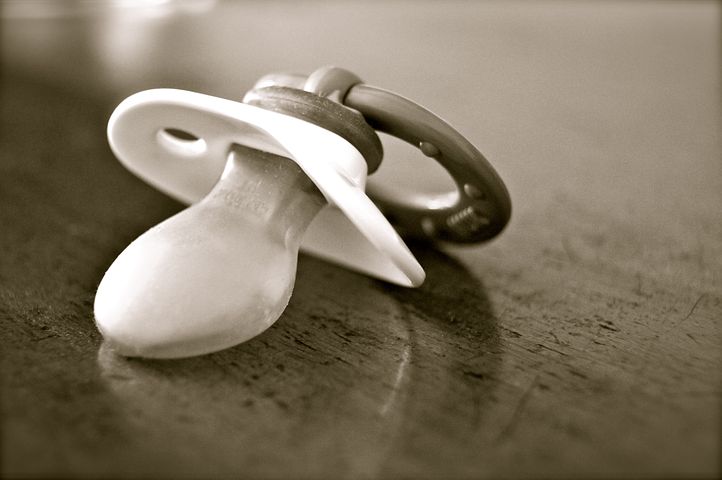When Can Babies Have Ice Cream: Treat Or Threat
Ask someone what their favorite dessert is, and you’ll get an overwhelming amount of people saying it’s ice cream. Ice cream is a classic, timeless dessert that a lot of people enjoy. It’s great for any season, but it’s especially welcomed during summer.
Ice cream is essentially a dessert made out of milk, cream, sugar, and flavoring. This mixture is then churned, frozen, and served. You can serve ice cream on its own, with toppings, or with another sweet dessert.
Ice cream has been around for a long time. But it wasn’t until the 19th century when ice cream became available to the normal consumer. And after World War II, ice cream became a staple in homes, groceries, and restaurants.
But while ice cream is so popular and good tasting, it’s also considered junk food. Ice cream is rich in fat and sugar. Having ice cream every day can definitely lead to some health issues.
So is ice cream a treat or a threat? And is it safe to give your infant ice cream? The answer is a little bit more complex than you think.
When Can Babies Have Ice Cream?
A lot of babies can start eating solid food when they turn 6 months old. However, you should wait until your baby turns 12 months old before serving them ice cream.
Ice cream is a dairy product, and babies are more sensitive to it. The milk protein and additives in ice cream can cause an upset stomach to your little tot.
Milk (and sometimes eggs) are also present in ice cream. These ingredients are common triggers for allergies. So avoid ice cream if you know your kid is allergic to it.
The Australian Guide to Healthy Eating says that ice cream, among other treats, is a poor source of nutrients. That’s why it’s discouraged to serve ice cream to young infants.
However, ice cream is not completely prohibited. You can serve ice cream if your pediatrician allows it. Eating ice cream occasionally won’t cause long-term negative side effects.
Why Ice Cream Should Never Be Your Baby’s First Food
We mentioned earlier to wait until your child is a lot older to eat ice cream. There are plenty of reasons why ice cream shouldn’t be your baby’s first food.
The first 12 months of an infant are very crucial in shaping your child’s diet. That’s why you want them to eat as many healthy foods as possible. Here are five reasons why ice cream shouldn’t be one of those foods:
1. Ice Cream Contains Milk
Babies are sensitive to cow’s milk and other dairy products. That’s why breast milk is still the best choice of milk for infants. Ice cream contains a lot of milk and cream, which can cause stress in a baby’s body.
2. Ice Cream Contains Chemicals
Ice cream contains a lot of artificial flavors, colors, preservatives, and other chemicals. This can have short and long-term side effects on a baby’s development.
3. Ice Cream Contains A Lot of Sugar
Ice cream has plenty of sugar, which can damage a child’s body. Sugar is linked to heart disease, diabetes, obesity, and cancer. Sugar can also be addictive.
4. Ice Cream Can Cause Digestive Problems
The ingredients in ice cream, such as whole milk, are hard to digests. Ice cream can lead to blockage, gas buildup, and pain in infants.
5. Ice Cream Can Lead To Oral Health Problems
Finally, because of its sugar content, ice cream can damage your baby’s teeth. Sugar can cause oral issues like cavities.
How To Serve Ice Cream to Babies
Assuming that your baby is older and can digest ice cream, then sure, you can give them a scoop. But parents should still be aware of some things before serving them ice cream for dessert.
- Read the labels on your ice cream. Honey and added sugar should be avoided.
- Watch out for allergic reactions like vomiting, diarrhea, rashes, and swelling.
- Give them only the recommended serving amount of ice cream. Parents must control their child’s food portions.
- Skip the add-ins like nuts, berries, sprinkles, and such. These can cause allergies or become a choking hazard.
- Finally, find ice cream with a simple and short list of ingredients.
Alternatives to Ice Cream
There are other, healthier options that you can give your baby. Ice cream is not the only frozen treat that your baby can enjoy.
Frozen yogurt is a healthier option that you can give your baby. It has fewer calories, less sugar, and more probiotics. You can put baby-friendly yogurt in the fridge to make it cooler and tastier.
Freezing some fruits like apples and bananas can also work. Not only are they healthier, but they are also a nice way to beat the summer heat.
You can also make homemade “nice cream.” Nice cream is a sugar-free, dairy-free alternative to ice cream, which uses frozen bananas as the base. Check out Fork Over Knive’s recipe on nice cream right here.
You and your baby can enjoy cold treats together without having to rely on ice cream. While it’s okay to eat ice cream, there are other, more nutritious ways to keep cool during summer. And most of these options are just as sweet and fulfilling as ice cream.
Conclusion
Ice cream is a popular dessert that is loved by millions of people. It’s a dairy-based treat that has a wide range of flavors. Ice cream is always served frozen on a cone, cup, or bowl.
Babies can have ice cream once they are 1 year or older. Younger infants are still too sensitive to eat ice cream because of its whole milk content. Plus, ice cream can trigger digestive issues and allergies.
With that said, kids should eat ice cream in moderation. Ice cream is filled with preservatives, fat, and sugar. Parents can serve ice cream to their kids as long as they follow the recommended serving.
Ice cream is a great snack for a hot summer day. But babies can have healthier options to cool themselves off. You and your baby will have a better time munching on some frozen fruits and yogurt dip.










